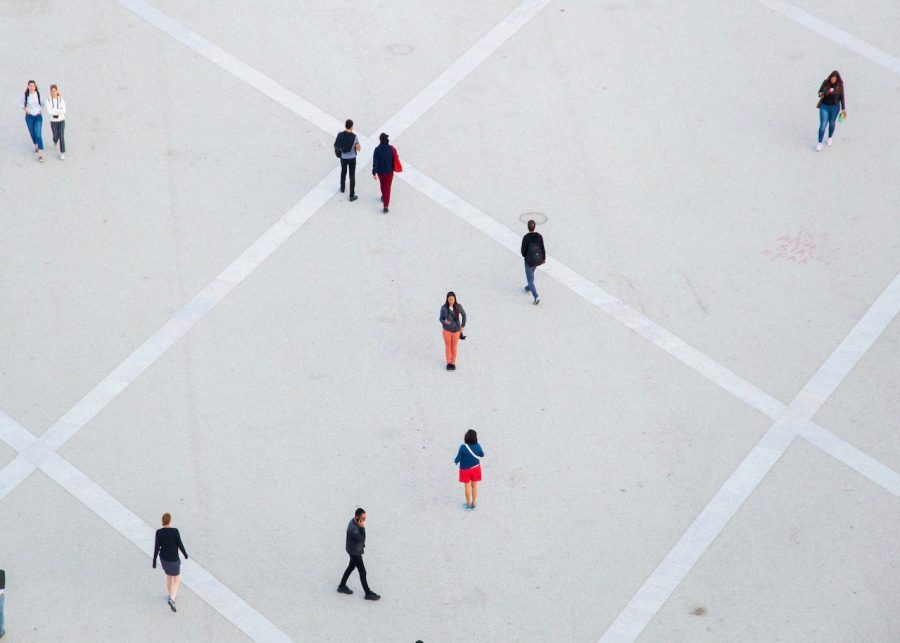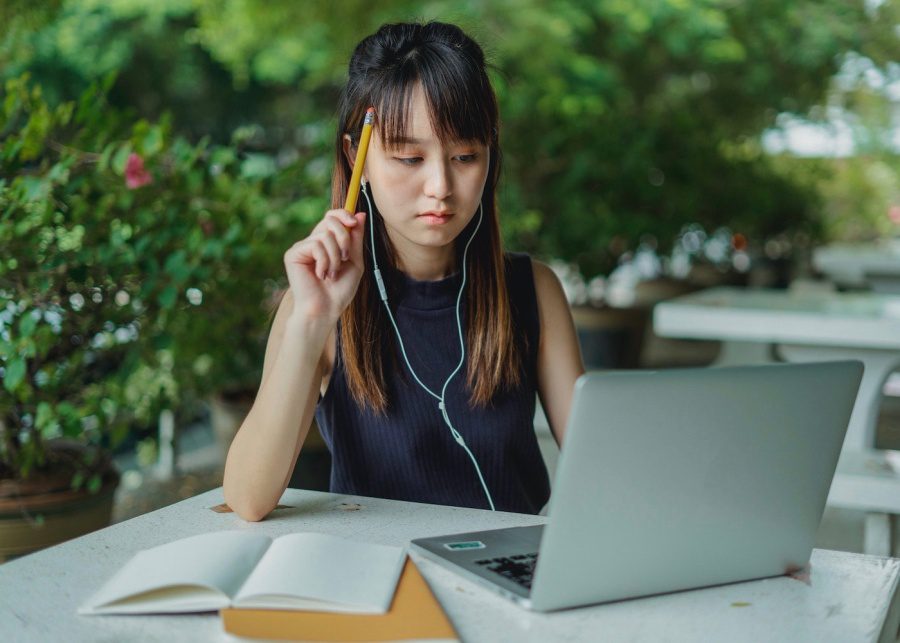
You’re not the only one feeling isolated in a post-pandemic world. Here’s how to navigate this epidemic of loneliness.
If you’ve been navigating the ups and downs of adulthood, you know it can be a challenge making and maintaining friendships. As if it’s not hard enough with existing responsibilities, the Covid-19 pandemic has made it harder to establish the connections we desire. The world has changed with the implementation of online classes, virtual programmes, and remote and hybrid work in the face of an ever-evolving virus. While this comes with several pros of its own, it’s a heavy blow on our social life. If you’ve ever thought, ‘I feel lonely,’ it’s because we’ve walked into an epidemic of loneliness.
Looking for (and struggling to find) romance, friendship or even just a deeper connection with your co-workers? You’re not the only one. In September 2021, a study by Bumble found more than one in three people in Singapore increased their usage of dating apps amidst the pandemic. Even our resident tarot consultant, Kelly Tan, noticed a changed quality in questions posed to her on love and relationships. “With the pandemic, more people are confronting issues of their own mortality, isolation, and suppressed emotional needs,” she explains.
“It’s a universal challenge we’re all facing. I’ve fielded the same questions from shy wallflowers and party animals, to part-time administrative workers and high-flying entrepreneurs.”
An epidemic of loneliness: The loss of core connections

There’s no doubt the pandemic has robbed young adults of opportunities to form core friendships and relationships. I can’t imagine what school would’ve been like if I didn’t have friends beside me every step of the way. Years on from graduation, I know these will be lifelong connections I’ll cherish until I’m old and grey. I also have ex-colleagues from work who have turned into close confidantes and great supporters.
But many youths have lost the chance to cultivate friendships and bonds that would’ve transitioned with them through each stage of life. I’m convinced that this broken foundation is one of the reasons for this spreading epidemic of loneliness.
Mark Hung (not his real name), 25, an undergraduate at the National University of Singapore, talks about challenges faced when lectures moved online during the pandemic. “I was lucky it hit during the second year of my studies, and I already had a close-knit group of friends. For the next three to four semesters, it became difficult to make new ones.”
On ‘Zoom Uni’, the usual camaraderie you’d build with course mates through chatting about modules or lecturers you love and hate is lost. “It became all about doing the work and logging off. Even when I reached out through online chats, the lack of physical interaction meant any existing relationships ended once the modules wrapped.”
Mark can’t imagine what it was like for those who started school when the pandemic was in full swing. “They missed out on attending orientation, student events and programmes. They weren’t able to meet each other in person for years. It’s hard to establish any lasting friendships that way.”
Working adults feel the brunt of loneliness too

I’m a huge advocate of flexible work. But I must admit it takes a huge effort from management and HR to ensure employees remain engaged and happy. Especially when they’re not physically together in the office every day. When you’ve forged good relationships with co-workers, you probably feel great about coming to work. But when companies don’t provide enough support for remote workers, opportunities to craft meaningful bonds can fall through the cracks.
Marketing executive, Zenia Koh (not her real name), 28, talks about the divide she feels with her co-workers in the workplace. She joined her company early in 2021 when Singapore was still on heightened alert from the pandemic. Even now, she spends the majority of her time working from home.
“I’ve been here for almost two years, but I feel lonely because I still don’t know my colleagues very well,” she says. “Some of them who were here pre-Covid-19 often talk about things that happened before it. I feel alienated at times because I didn’t get to share that experience.”
Zenia also shares that while she’s required to work from the office once a week, not everyone comes in on the same day she does. It’s made interaction within her team difficult. While she tries to chat with them, each interaction is superficial and fleeting. “Most of my co-workers prefer to work remotely, so the office ends up feeling like a transit stop where people drop by only for important meetings or mandatory events. It feels like everyone’s main goal is to get out of here as fast as possible.”
What happens when we get too comfortable with being lonely

An epidemic of loneliness may seem negligible. But what if its impact is as insidious as the coronavirus itself? In the last year, I’ve already heard a handful of people tell me they’ve grown accustomed to having lesser human interaction. “I’m definitely not the social butterfly I used to be,” Mark remarks. “I don’t think I’d go out of my way to make friends with someone now.”
Experts share this could be due to the impact isolation has had on us, rather than a true desire to be alone. “When a person is isolated from others for too long, it may increase their anxiety, low moods, stress levels and fear,” says Camellia Wong, co-founder and principal psychologist at Inpsychful.
Sanveen Kang, founder and clinical psychologist at Psych Connect, shares that the comfort of seeking loneliness can come from an awareness of social anxiety. “Many people felt relieved when they didn’t have to navigate social demands during the pandemic. But when the world began to re-open, they noticed inertia in returning to life as they knew it,” he says.
Avoidance and escape have become coping mechanisms for many. But as human beings are social creatures, the lack of interest in making connections can lead to disastrous effects. “Feelings of isolation create emotional distress, and can exacerbate health problems and contribute to early mortality,” Sanveen says.
When there’s no vaccine for loneliness

If you’re tired of feeling lonely, the good news is you have the power to change the trajectory of your life. It all starts with a change in mindset.
“What happens, and who we end up with, is determined by the choices we make at each moment of our lives,” Kelly says. She encourages us to move out of a mindset of scarcity. This will make us feel much more confident about exploring our options.
Camellia shares that it helps to look inward and have an understanding of yourself and your needs. “Ask yourself what type of connection you tend to seek from others. Is it emotional, intellectual or physical?” she says. Once we know what we want, we can turn to friends and family for the relationship we desire.
If you’re looking to rekindle old friendships, perhaps all it takes is a simple text message to the friend you miss. “The barrier to establishing friendship [lies in] how we perceive others think of us. We make up false narratives that others aren’t keen to meet up or have a lot going for them. But we should always avoid passivity and reach out,” he says.
So if you’ve ever thought ‘I feel lonely’, maybe it’s time to send that text, volunteer for a cause, join that community group or sign up for a dating app. Unlike Covid-19, there’s no vaccine for this ongoing epidemic of loneliness. But with some self-reflection and effort, you may just find a cure of your own.
